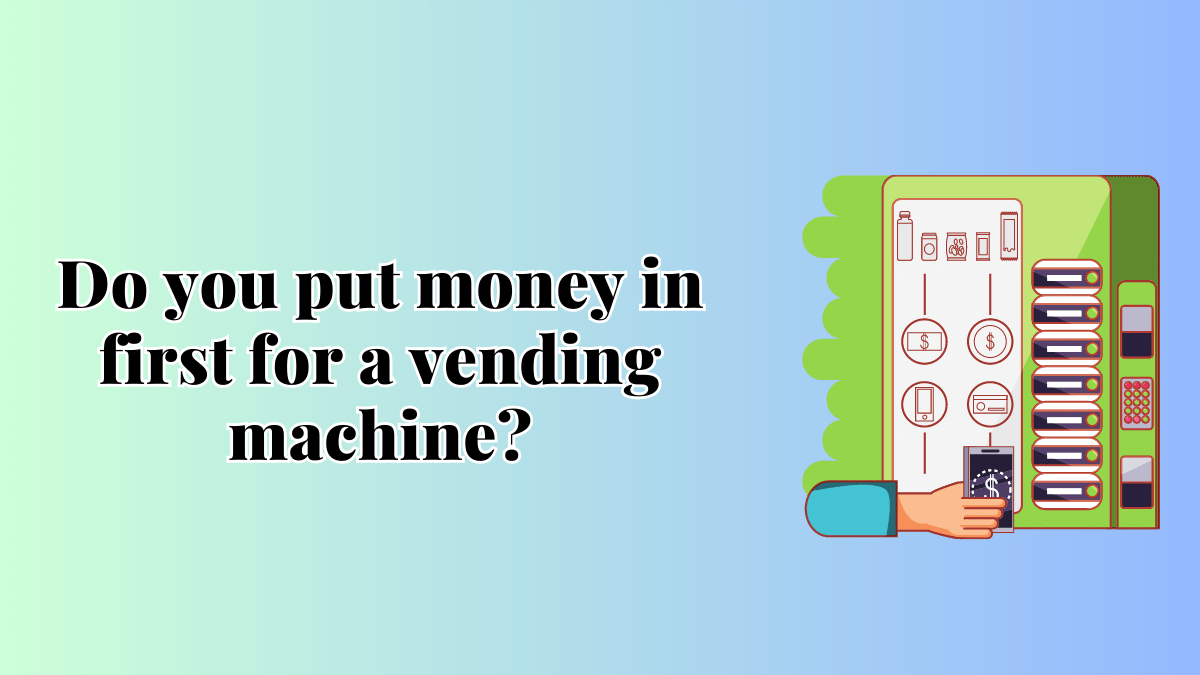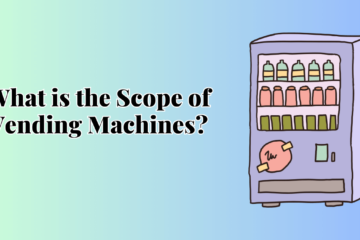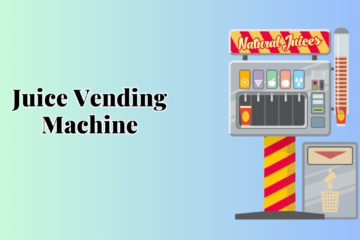Vending machines have become an integral part of modern life, providing quick access to snacks, drinks, and various products. However, the question remains: Do you put money in first for a vending machine? In this detailed article, we will explore the best practices and considerations when using vending machines to ensure a seamless and satisfying experience. With expert insights and personal experiences, we aim to provide you with valuable information to make the most of your vending machine encounters.
Do You Put Money in First for a Vending Machine?
The act of putting money in first for a vending machine is a common practice, but it’s not the only option. While it was traditional to insert coins or bills before making a selection, modern vending machines offer various payment methods, including credit cards, mobile payments, and contactless options. So, the answer to whether you put money in first for a vending machine largely depends on the type of vending machine and the available payment options.
Understanding Different Vending Machine Payment Methods
- Coins and Bills: Traditional vending machines accept coins and bills as primary payment methods. Users insert the desired amount before selecting their chosen product. This approach is straightforward and accessible for those who prefer cash transactions.
- Credit and Debit Cards: Many modern vending machines are equipped with card readers, allowing customers to make purchases using their credit or debit cards. This option offers convenience and flexibility, especially for those who don’t carry cash.
- Mobile Payments: With the rise of mobile payment platforms, vending machines have embraced this technology. Users can now make purchases by tapping their smartphones or using QR codes, making transactions faster and more efficient.
- Contactless Payments: Some vending machines are equipped with contactless payment options, such as Near Field Communication (NFC) or Radio-Frequency Identification (RFID). Users can pay by simply waving or tapping their contactless cards or devices.
- Prepaid Vending Cards: Prepaid vending cards are another popular payment method. Users load money onto these cards, and then they can use them to make purchases from vending machines without the need to insert cash or cards each time.
Tips for Using Vending Machines Effectively
- Inspect the Machine: Before using a vending machine, inspect it for any signs of damage or malfunction. If you notice any issues, report them to the appropriate authorities.
- Choose Well-Lit Locations: Opt for vending machines located in well-lit and populated areas to ensure safety and security during your transactions.
- Check the Expiration Dates: When purchasing perishable items from vending machines, always check the expiration dates to avoid consuming expired products.
- Mind Your Change: If you pay with cash and receive change, ensure that you collect it before leaving the vending machine area.
- Be Mindful of Others: Avoid taking an extended time to make your selection, especially if others are waiting to use the machine.
- Report Problems: If you encounter issues with the vending machine, such as a product not being delivered, contact the vending company or location manager for a refund or assistance.
Frequently Asked Questions (FAQs)
Q: Can I get a refund if the vending machine takes my money but doesn’t dispense the product?
A: Yes, most vending companies have a refund policy for such situations. Contact their customer service with the details of the transaction to request a refund.
Q: Are vending machines safe to use in terms of food hygiene?
A: Vending machines that dispense food products should adhere to strict hygiene standards. However, it’s always a good practice to check the cleanliness of the machine and the product packaging before making a purchase.
Q: Can I use foreign currency in vending machines?
A: It depends on the vending machine’s capabilities. Some machines may accept foreign currency, while others may not. It’s best to use the local currency or check with the vending machine operator.
Q: Do vending machines accept damaged coins or bills?
A: Vending machines may not accept heavily damaged coins or bills. It’s advisable to use currency in good condition to avoid transaction failures.
Q: How do I know if a vending machine accepts credit cards or mobile payments?
A: Vending machines that accept credit cards or mobile payments usually display corresponding logos or symbols on the machine. Look for these indicators before attempting to use these payment methods.
Q: Are vending machines profitable for business owners?
A: Vending machines can be a profitable business venture when placed strategically and stocked with popular products. However, the profitability depends on factors like location, foot traffic, and the choice of products.
Conclusion
Vending machines have evolved over the years, offering multiple payment options for user convenience. Whether you put money in first for a vending machine or use modern payment methods, the key is to be mindful of your surroundings, inspect the machine, and make informed choices when purchasing items. By following these tips and guidelines, you can ensure a positive vending machine experience every time.
So, the next time you encounter a vending machine, remember that the power to make a satisfying purchase lies in your hands. Happy vending!




